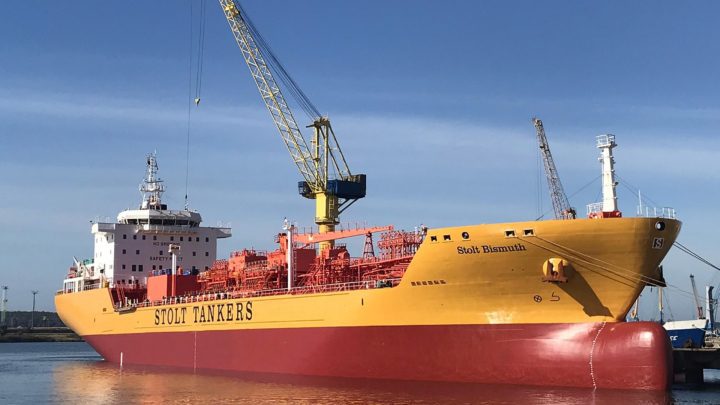
To support the shipping industry’s drive to reduce its carbon footprint, in 2020 Stolt Tankers published its ambition to reduce its own carbon intensity by 50% by 2030 (relative to 2008) and to become a fully carbon-neutral business by 2050.
As almost 200 countries agreed to the Glasgow Climate Pact last week, it remains clear that environmental concerns are increasingly pressing for governments and businesses alike.
Driven to operate sustainably
Stolt Tankers ambitions are not only driven by a desire to operate more sustainably; they are also a business imperative in the face of new legislation, such as the introduction of shipping into the European Union Emissions Trading System (ETS).
Starting from 2023, ship-owners will be charged for each metric tonne of in-scope CO2 emitted. This presents a considerable challenge for the shipping industry where costs are already at an all-time high, margins are thin and supply chains increasingly volatile.
Stolt Tankers achieved savings in bunker consumption by improving operational and technical efficiencies and fleet optimisation. Speed and trim were optimised according to weather conditions and enhanced maintenance programmes – including additional hull and propeller cleaning – also reduced fuel use. In addition, several ships were installed with advanced power-saving propeller fins. The bunker savings directly correlate with a reduction in CO2 emissions.
Partnering with leaders to explore new technologies in the face of decarbonisation
Stolt Tankers is also partnering with other leaders to explore new technologies focused on decarbonising, emissions reduction, and alternative fuels. The Company is a member of the Mærsk Mc-Kinney Møller Center for Zero Carbon Shipping and is seconding staff to the centre to collaborate on decarbonisation projects.
Commenting on the need to reduce CO2 emissions and the new carbon tax, Lucas Vos, president Stolt Tankers, said: “Stolt Tankers has a long history of doing the right thing when it comes to protecting people and the planet. We support requirements for businesses to reduce carbon emissions.
“We are working hard to meet our new carbon-reduction goals and I am pleased to see that we are making good progress towards these ambitions. However, the impact of further regulation including the EU carbon tax will be felt all the way through the supply chain as costs must inevitably be passed on to our customers and, ultimately, the end consumer.”
